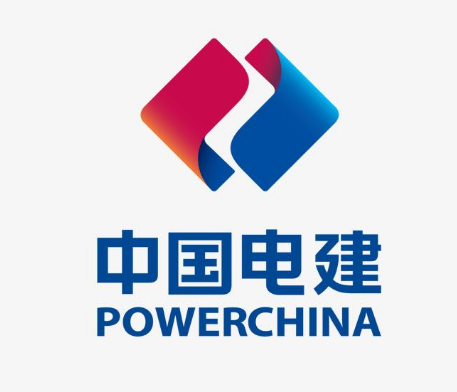BEIJING, Dec. 17 (Xinhua) -- Chinese enterprises have actively responded to the Belt and Road Initiative and participated in the construction of infrastructure and energy projects in Africa in recent years, which has greatly enhanced living standard of the local people and eased their energy shortage.
-- Power shortage, a headache for Zimbabwe
The power supply in Zimbabwe is mainly sourced from Hwange Power Station, a coal-fired power plant built in the 1970s-80s in Matabeleland North Province, west of the country.
Zimbabwe has a national power demand of over 2,000 MW, while it can only produce 1,300 MW of power. The gap forces the country to import the power from neighboring countries, placing itself under a heavy financial burden.
Webster, an engineer from Harare, said power outages are so common in Zimbabwe, and even the capital, Harare, which is often faced with power rationing, offers little power except in the morning.
According to him, power shortage has become a significant barrier to Zimbabwe's economic growth and informatization process, "Nothing can be done without electric power."
-- Power expansion project to help resolve problem
An power plant expansion project, the largest one since the independence of Zimbabwe in 1980, has been undertaken by Power Construction Corporation of China (PowerChina), aiming to help Zimbabwe out of perennial power shortages and revive its economy with self-support capability.
Tang Zhaolai, an official in charge of the project, said that due to the aging equipment, the deteriorated Hwange Power Station now can merely generate about 500 MW despite its installed capacity of 920 MW, and other power stations are strapped with poor generation capacity, giving rise to the serious power supply shortage across the country.
The project is expected to greatly improve the current situation of power development in Zimbabwe. With a total cost of 1.4 billion U.S. dollars, it seeks the most funds by concessional loans from the Export-Import Bank of China.
According to Shen Guochao, marketing manager of PowerChina in Zimbabwe, the project is due to take 42 months to complete and will install two more 335 MW generating units on the original power station.
It also involves the construction of supporting facilities, including a powerhouse, a cooling tower, 4 substations, a 200,000-m2 reservoir, and the laying of 360-km 400 kV transmission and distribution lines. Once completed, it will meet 60 percent of the domestic power demands in Zimbabwe, effectively easing its power shortages.
-- Chinese standard and quality introduced for the project
According to Tang, the expansion project places stringent requirements on environmental protection. So the Chinese standards and Chinese design will definitely satisfy the locals.
The project is expected to optimize Zimbabwe's electricity mix, effectively save energy and help address environmental concerns in the country.
Wu Yifeng, chief representative of PowerChina in Zimbabwe, said that mining, agriculture and some industrial sectors in Zimbabwe are facing bottlenecks caused by power shortages. Constructing a new power station is crucial to the recovery of the country's economy.
"Our lives will be greatly improved with access to cheaper and cleaner power supply," locals expressed in thrill.
In addition to fulfilling its commitment to environmental protection, the project also catches the eye of locals with desirable "China Quality".
Tang said that Chinese projects have built up a good reputation and a strong appeal in Zimbabwe, attracting many local people to work in Chinese companies.
The project will create more than 2,000 direct jobs and 4,000 indirect ones. Mitchell, a 41-year-old local worker, said that it is hard to find a stable job in Zimbabwe.
Working for a Chinese company, however, means getting stable income and developing professional skills from the intensive trainings. Chinese companies are becoming star employers in Zimbabwe, attracting many local job seekers.
-- Iconic project in China-Africa cooperation in Southern Africa
Zimbabwe plans to achieve the modernization of energy infrastructure and the self-sufficiency in energy by 2020, and develop into a middle income country by 2030.
However, the country will require 11,000-plus megawatts of electricity to realize its vision.
In March 2018, the Kariba South hydro power expansion project undertaken by PowerChina went into full operation. As Zimbabwe's largest hydro power project since its independence, it will increase total electricity supply for the country by 20 percent to 30 percent.
President Mnangagwa hoped that the Hwange coal-fired power plant expansion project would push Zimbabwe toward the target of becoming a middle income country by 2030. To this end, China's support and assistance are of vital importance to the country's target of energy self-sufficiency.
This would benefit the people in the long run, he expressed. In recent years, China has provided Zimbabwe with a great deal of assistance in infrastructure and agriculture, which is of significant importance to the advancement of Zimbabwe's industry and agriculture. Meanwhile, China has created a plenty of employment opportunities there.
Khaya Moyo, former minister of Energy and Power Development of Zimbabwe, hoped that China would continue to support Zimbabwe in the development of energy industry and help this country meet its ever-increasing demand for electricity. The increase of power supply was expected to bring more opportunity for Zimbabwe to boost its economic development, he stated.
Hwange power plant expansion project, where Zimbabweans pin their hopes, will also emerge as another iconic project of China-Africa cooperation in Southern Africa. (By Wu Shuang)




 A single purchase
A single purchase









